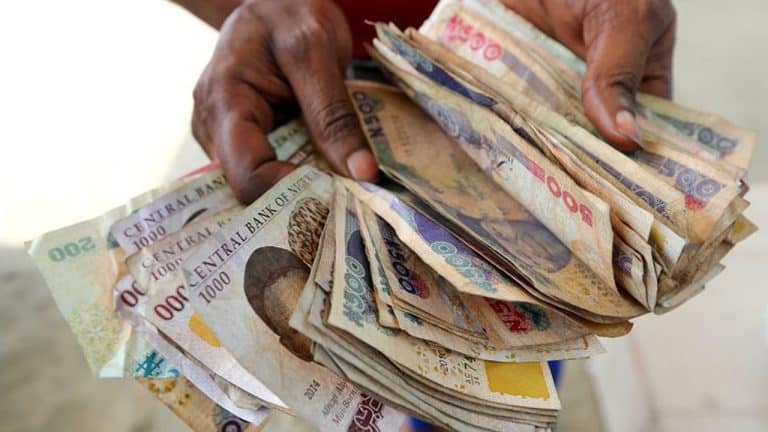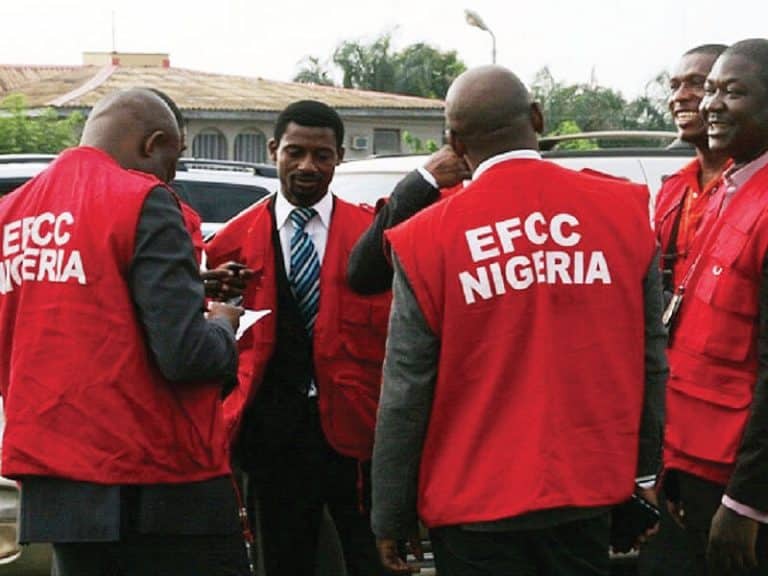The Minister of the Ministry of Solid Minerals Development, Dele Alake, has announced that the Federal Government has apprehended no fewer than 300 illegal miners nationwide as part of the incumbent administration’s initiative to rejuvenate Nigeria’s mining industry.
Alake disclosed this during a strategic briefing held by the House Committee on Solid Minerals during their oversight visit to his office at the ministry’s headquarters in Abuja on Thursday.
During this visit, Alake presented a series of transformative measures designed to revitalize Nigeria’s mining sector.
Focusing on a comprehensive 7-point agenda, the minister highlighted the advancements achieved in securing Nigeria’s mining operations, combating illegal activities, and establishing the sector as a fundamental element of economic development.
“At the forefront of this transformation is a strengthened security framework designed to combat illegal mining—a longstanding challenge that has threatened both local communities and Nigeria’s global standing. Since deploying over 2,000 trained mine marshals, nearly 300 illegal operators, including foreign nationals, have been apprehended, significantly reducing unauthorized mining activity across the nation,” Alake noted.
The minister attributed the advancements to the proactive assistance of President Bola Tinubu, which has facilitated efficient collaboration among ministries, particularly with the Ministry of Interior, thereby ensuring the rapid allocation of resources and personnel to safeguard mining areas.
“This renewed security architecture is already having a profound impact,” Dr. Alake noted, describing the positive shift brought by reduced illegal operations.
“Our commitment to safeguarding our mining sites is also a commitment to Nigeria’s stability and an invitation to investors who seek reliable partnerships,” he said.
Dr. Alake also emphasized the ministry’s ambition to position Nigeria as a prominent global mineral hub while enhancing security measures.
He noted that focused outreach initiatives have effectively garnered the attention of top international investors, thereby setting the stage for future collaborations in Nigeria’s mineral sector that are poised to yield mutual benefits.
“The strategic focus on in-country processing and value addition for minerals is helping Nigeria retain wealth that might otherwise be lost through raw exports. This policy is also setting a trend across Africa, culminating in the creation of the African Mineral Strategy Group,” the Minister noted.
With revenue on the rise and global interest growing, Nigeria’s solid minerals sector is gaining recognition as a driver of sustainable development.
Meanwhile, Alake expressed gratitude for the ongoing support from Nigeria’s legislative authorities and other key partners, emphasising that these combined efforts are building a resilient foundation for the sector.
“We’re setting Nigeria’s mineral wealth on a path to growth, resilience, and international respect,” he stated, adding with a smile, “But like Oliver Twist, we ask for more. We look forward to even stronger collaboration to achieve greater milestones.”
The minister expressed optimism that with these reforms setting the stage for substantial economic contributions, Nigeria’s mining sector is on a trajectory to significantly bolster the nation’s Gross Domestic Product.
The Chairman of the House Committee on Solid Minerals Development, Hon. Garza Gbefwi, emphasized the Committee’s commitment to promoting transparency, growth, and strong support for the solid minerals sector.
He highlighted that the Committee has consistently maintained a clear separation between legislative and executive functions, thereby allowing the Ministry to formulate and execute its policies independently.
This year, the Committee has adopted a more proactive approach by closely collaborating with each agency under the Ministry’s oversight.
These interactions, he noted, yield critical insights into both the successes and challenges faced within the sector, particularly from significant agencies such as the Nigerian Geological Survey Agency (NGSA) and the Solid Minerals Development Fund (SMDF). The objective is to identify and resolve any barriers that may impede the sector’s progress.
The Chairman pointed out that a primary challenge confronting the NGSA is its limited financial resources, which hampers its ability to fulfill its vital role in generating geological data.
Given that mineral exploration requires substantial capital investment, adequate funding is essential for producing reliable data that can propel the sector forward.
In this regard, he called for increased financial support to foster a productive partnership between the NGSA and SMDF, allowing both agencies to effectively contribute to the growth of the sector.
Recognizing the critical role of the solid minerals sector in Nigeria’s economy, Hon. Gbefwi urged the Federal Government to prioritize financial support for its advancement.
He advocated for the ministry to collaborate closely with the president and other essential stakeholders to secure the necessary resources that will promote the sector’s long-term viability and influence.
In addressing the challenges related to licensing and consent, the Chairman emphasized the need for careful management in the areas of exploration and extraction, particularly regarding community consent.
He noted that without a well-structured consent process, local tensions may escalate once valuable resources are identified.
Establishing a transparent and inclusive licensing framework is vital to reducing conflicts, honoring community rights, and ensuring social harmony.
The Committee, he stated, is in favor of initiatives aimed at improving this process to encourage stable and sustainable growth.
Hon. Gbefwi also acknowledged the ministry’s achievements, especially in progressing the 7-Point Agenda, affirming that the committee is fully supportive of these initiatives and is dedicated to collaborating with the ministry to elevate Nigeria’s solid minerals sector as a key contributor to the national economy.
In her remarks, the Permanent Secretary of the Ministry, Dr. Ogbe, expressed gratitude to the Committee members for their ongoing advocacy for the solid minerals sector.
She recognized that the Committee’s dedication to matters such as funding, policy direction, and legislative support has been instrumental in empowering the Ministry to achieve its objectives.
“Together, we can achieve our shared objectives, particularly in increasing the sector’s contribution to Nigeria’s overall economic sustainability,” she said.
The Chief Accounting Officer emphasized the Ministry’s reliance on the committee’s assistance in tackling challenges, obtaining essential resources, and improving operations throughout its agencies.
She pointed out that the Ministry’s recent progress, especially in policy development and community engagement, stems from a fruitful collaboration with the committee.
Dr. Ogbe reiterated the Ministry’s dedication to promoting a transparent and effective framework for the solid minerals sector.
She expressed the belief that, with the continued support of the House Committee, the Ministry will persist in advancing initiatives, generating employment opportunities, and aiding Nigeria’s efforts toward economic diversification.







